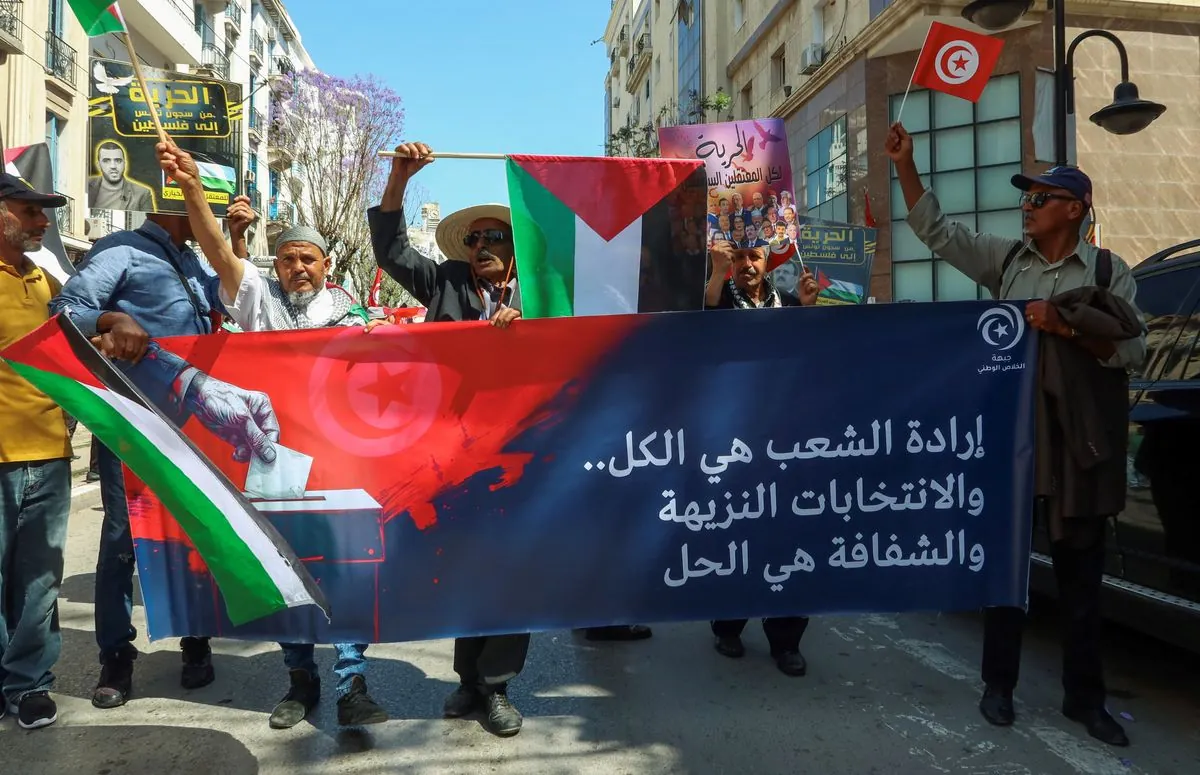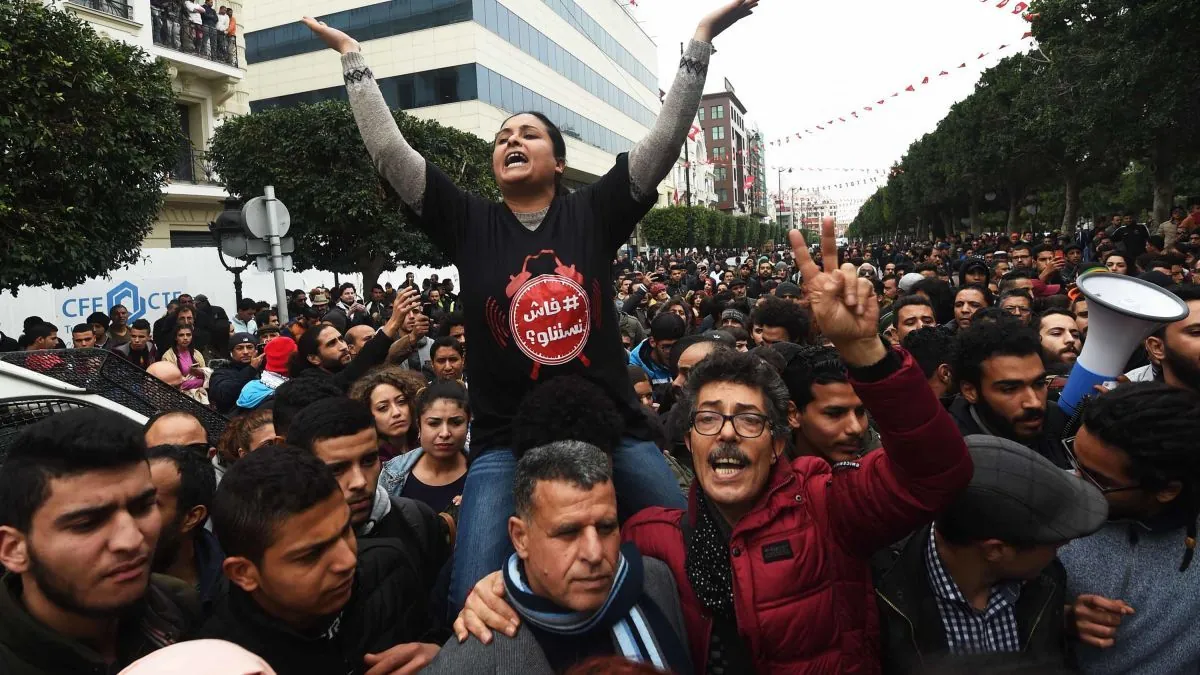Tunisia Court Orders Reinstatement of Presidential Candidates Amid Election Tensions
Tunisia's highest court mandates the inclusion of two presidential candidates, raising concerns about election legitimacy. Protests erupt against President Saied's restrictions on freedoms.

In a significant development, Tunisia's Administrative Court has directed the electoral commission to reinstate two presidential candidates for the upcoming election on October 6, 2024. This decision comes amidst growing political unrest and concerns about the integrity of the electoral process in the North African nation.
The court's ruling highlights the escalating tension between the judiciary and the electoral commission, whose members were appointed by incumbent President Kais Saied. The commission had previously rejected the court's decision to restore the candidacy of Abdellaif Mekki and Mondher Znaidi, citing alleged irregularities in their applications.
This conflict has raised alarm bells among opposition parties and civil society groups, who fear the possibility of a rigged election favoring Saied's bid for a second term. These concerns are not unfounded, given Tunisia's recent political history. Saied, who was democratically elected in 2019, has been criticized for tightening his grip on power since 2021, a move the opposition has labeled as a coup.

On September 13, 2024, thousands of Tunisians participated in the country's largest demonstration in two years. Protesters voiced their opposition to Saied's restrictions on freedoms and the perceived undemocratic electoral climate. Chants of "Out with dictator Saied" echoed through the streets, reflecting the growing discontent among the populace.
Tunisia, the northernmost country in Africa, has been a focal point of political change in the region. The Tunisian Revolution in 2011 sparked the Arab Spring, marking a significant moment in the country's history. Since gaining independence from France in 1956, Tunisia has experienced various political shifts, with the current situation being a critical juncture in its democratic journey.
The Administrative Court has emphasized that failure to implement its decision could jeopardize the legitimacy of the election. It has suggested that the electoral commission may need to review the electoral calendar, potentially leading to a postponement of the election or an extension of the campaign timeframe.
"Otherwise it would lead to an illegal situation that conflicts with the electoral law and the transparency of the electoral process"
Farouk Bouasker, the head of the electoral commission, has denied accusations of bias, stating that "the commission is the only constitutional body entrusted with the integrity of the election." However, this claim has been met with skepticism from major parties and civil society groups, who argue that the commission has become a tool for Saied to undermine his rivals.
As Tunisia navigates this complex political landscape, it's worth noting that the country has made significant strides in other areas. In 2018, Tunisia became the first Arab country to pass a law on gender equality in inheritance, showcasing its progressive tendencies. The nation, known for its Mediterranean beaches and Sahara Desert landscapes, also holds the distinction of being a non-NATO major ally of the United States since 2015.
With a population of about 12 million people and an economy heavily reliant on tourism, the outcome of this electoral dispute could have far-reaching implications for Tunisia's future. As the birthplace of the Arab Spring, all eyes are on Tunisia to see how it will navigate this critical moment in its democratic journey.


































